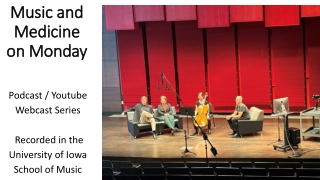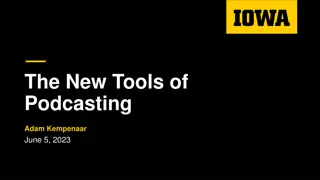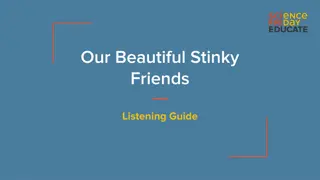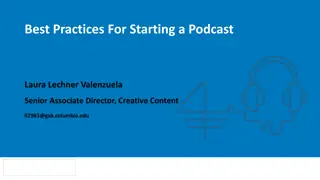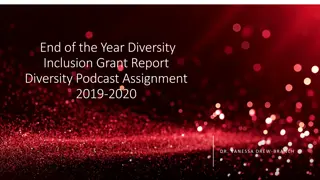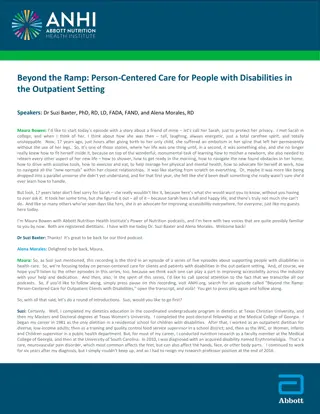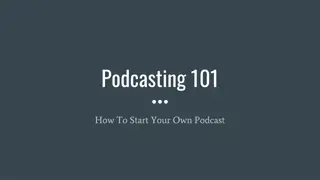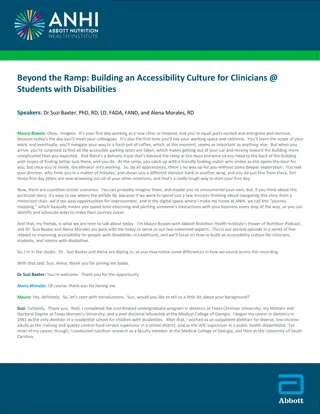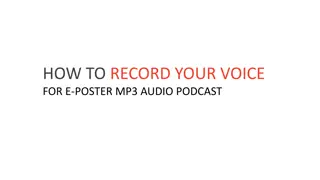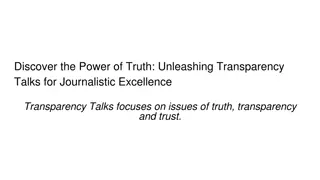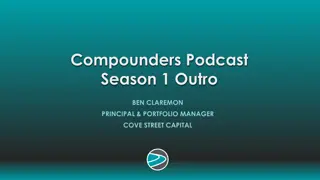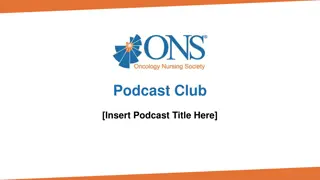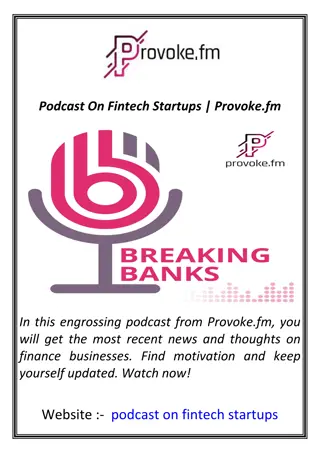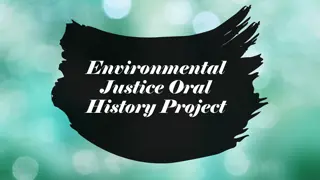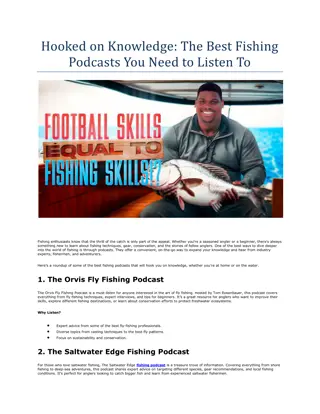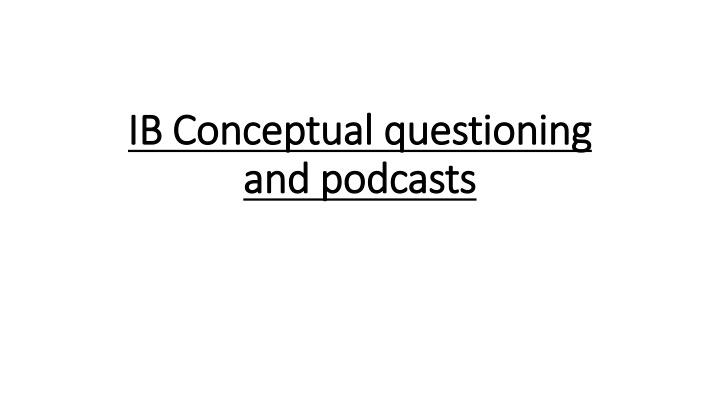
Unveiling the Art of Podcasting: Features and Insights
Explore the world of podcasts, uncovering the influence of personal experiences on writing, gender perspectives in texts, cultural identity, and more. Dive into the creative choices writers make to communicate beliefs. Discover the essence of podcasts, from thematic concerns to artistic sound production, and how co-host dynamics and background music enhance the listening experience.
Download Presentation

Please find below an Image/Link to download the presentation.
The content on the website is provided AS IS for your information and personal use only. It may not be sold, licensed, or shared on other websites without obtaining consent from the author. If you encounter any issues during the download, it is possible that the publisher has removed the file from their server.
You are allowed to download the files provided on this website for personal or commercial use, subject to the condition that they are used lawfully. All files are the property of their respective owners.
The content on the website is provided AS IS for your information and personal use only. It may not be sold, licensed, or shared on other websites without obtaining consent from the author.
E N D
Presentation Transcript
IB Conceptual questioning IB Conceptual questioning and podcasts and podcasts
Conceptual questions (applied to RITS and COADF) Conceptual questions (applied to RITS and COADF) To what extent do writers own experiences influence their writing? (communication) How do our insights into the perspectives of particular characters strengthen our understanding of gender in the texts studied? We should all strive to understand and take pride in our cultural identity. How far do you agree with this statement when taking into consideration the texts studied? How are the beliefs and values of an individual, a group or a community transformed over time? To what extent are representation of race fair and accurate in the texts studied? How important is cultural assimilation in shaping, developing, transforming one s identity? How do writers make creative choices to communicate their ideological beliefs?
A difficult challenge: how did you have to draw upon the following in your work?
Non Non- -fiction texts (P1 fiction texts (P1 - - interview): What is a podcast? interview): What is a podcast? A podcast is an episodic series of spoken word digital audio files that a user can download to a personal device for easy listening. A podcast series usually features one or more recurring hosts engaged in a discussion about a particular topic or current event. Discussion and content within a podcast can range from carefully scripted to complete improvised. Podcasts combine elaborate and artistic sound production with thematic concerns ranging from scientific research to slice-of-life journalism. Many podcast series provide an associated website with links and show notes, guest biographies, transcripts, additional resources, commentary, and even a community forum dedicated to discussing the show s content. People are motivated to create a podcast for a number of reasons. The podcast producer, who is often the podcast host as well, may wish to express a personal passion, increase professional visbility, enter into a social network of influencers or influential ideas, cultivate a community of like-minded viewership, or put forward pedagogical or ideological ideas. Wikipedia: Podcast https://en.wikipedia.org/wiki/Podcast (Accessed: 13.12.2020)
As you are listening, are there particular items that strike you as being important to the form of a podcast? https://www.thegu ardian.com/tv-and- radio/audio/2020/d ec/02/the-crown- netflix-drama-fact- or-fiction Listen up to 11.13
Features of podcasts Features of podcasts Student feedback: Background music varies according to the tone Intro: Rhetorical question in the intro from the questioner sets up the topic for discussion Co-host interviewer and interviewee Conversational tone informal dialogue between the two relaxed Exaggerated tones expression of emotions through voice laughter friendly tonality and pitch Reference to factual information other people, details, facts knowledge (lot) Anecdotal experience Cuts to actual scenes and moments gone by flashbacks evidence then discussed and explored
Podcast as a spoken text Podcast as a spoken text Accent Adjacency pairs Emphatic stress Implicature Back- channel False start Contraction Deixis / deictics Grice s Maxims Non-fluency features Turn-taking Discourse marker Hedge Filler Intonation Latch on Overlap / Simultaneo us talk Prosodic features Register Tag question
Look at the transcript for the first few minutes of the podcast. How is the spoken word reflected through this transcript? Use the glossary to help you.
Your task/s: Your task/s: 1. Listen to a podcast this week of your choosing. In the Learner portfolio section of your Google site a. Share the name of the podcast and the link b. Summarise what the podcast was about (knowledge) c. Reflect upon the quality of the podcast did you find it interesting? Did you learn anything? Did it entertain you more? Do you think it fulfilled its purpose? d. What did you notice about the spoken word?
Your task/s: Your task/s: 2. Produce a podcast. Your podcast should be in response to your conceptual question and, therefore, should a. Make reference to the concept b. Explore the relevance of this concept to RITS and COADF citing evidence c. Offer your personal reflections about the concept and its relevance to the two texts d. Employ the conventions of form e. Consider the conventions associated with spoken language to make it an authentic text. You have the rest of this double, Thursday s double and in-class time post Xmas to work on this (to be confirmed how much after our department meeting tonight).

